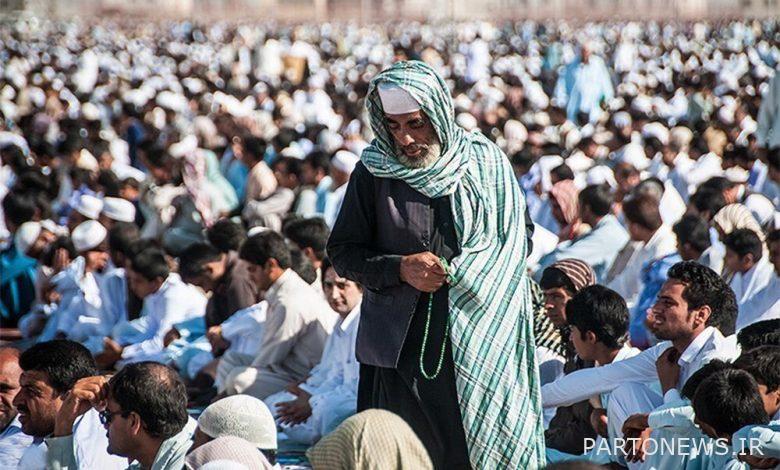Where is “Eidgah”?/ The connection between the custom of “bloodletting of the three-part” and the end of the Quran – Mehr News Agency | Iran and world’s news

According to Mehr reporter, “Mirror of Kindreds” is the title of a series of radio shows narrated and directed by Mehrdad Eshghian, which is a journey into the world of Ramadan rituals in Iran. This is a 30-part collection of the productions of the General Directorate of Performing Arts of Radio, which is published in Mehr News Agency with the suggestion and support of Ayub Aghakhani.
Mandana Aslani, Razia Momivand, Mandana Mohseni, Gholamhasan Tassiri, Mohammad Yeganeh, Mohammad Agha Mohammadi They are present as actors in this series and other actors of the radio series “Aineh Obeh” are author: Soheila Khodadadi, researcher: Nasser. Malayan, Effector: Narges Musipour, sound engineers: Pirouz Sadraei and Mohsen Javadi, producer and editor: Nahid Gudarzi.
twenty And the fourth part of “Mirror of Nations” with a duration of 28 minutes and 56 seconds, with a trip to Sistan and Baluchistan province, deals with the rituals of the people of this province as well as the rituals of the people of Kazerun, Bushehr and Yazd during the holy month of Ramadan.
twenty And we start the fourth day of the journey in the rituals of Ramadan in Iran like this:
“Life one sometimes Like one falls asleep one A dream that you don’t want to wake up and see he sleeps. one Sweet sleep it’s lovely. you Roza And nights That’s how life passed for me one It was a sweet dream. Traveling to the heart of the rituals and culture of the Iranian people in the month of Ramadan has opened my eyes to a new world, a world full of love, spirituality and faith, full of honesty, purity and purity.”
“fork» It is a local sweet of Sistan and Baluchistan region, which is mostly prepared during the month of Ramadan. This sweet with dates, Dough It is half cooked and cooked in local animal oil.
“Batmash” is also one of the traditional dishes that is cooked in Ramadan. Of course, this food in winter too Cooking will be Some believe that everyone at the time Magic If he eats it, he will not be hungry anymore.
“TimoshIt is the same bread that is eaten during the month of Ramadan for breakfast and iftar Cooking will be “PekoreIt is also a bread that is used at the Iftar table and contains wheat flour, coriander and aromatic spices.
In the last days of the holy month of Ramadan, people from different villages and cities go to the big markets and buy clothes, food and sweets. Also, the women of Sistan and Baluchistan buy henna a few days before Eid al-Fitr and prepare it the day before Eid. one henna It is special and local. When the henna is ready, women and girls put henna on their hands, which indicates celebration and happiness.
On this day of the journey, the narrator tells us about the custom of “bloodletting in three parts” of the people of Kazerun in the holy month of Ramadan. In this custom, people who intention Or a vow They are holding the Quran reading ceremony from the first night of Ramadan and after finishing the Quran, Bonnie The sheep assemblyBonnie and its meat is distributed among the needy.
Also, the narrator says that in Khormouj Bushehr, it is customary for people to read a part of the Quran every day in the mosque from the first of Ramadan, and every Qari To be blessed with Surah Al-Rahman, he must Yemen Give this gift to others because they believe that Surah Al-Rahman is very important your grace And to whomever it reaches, there is an omen and blessing.
On the day of Eid al-Fitr in Sistan and Baluchistan province, men wear new clothes and go to “EidgahThey go to the place where the Eid al-Fitr prayer is held. Ceremony congratulations Say And asking for halal Eid al-Fitr in Sistan and Baluchistan province is 3 days. After the men went toEidgah“, women wear new embroidered clothes at home and wait for their husbands by cooking food and sweets.
In another part of the day twenty And the fourth journey of “Mirror of Nations”, the narrator says about the custom of “Friendship Night” of the people of Yazd that during this custom Yazdi youths and teenagers spend the night twenty And on the seventh month of Ramadan, they gathered together and chose a person who had a good voice as the leader. This group took a boy wearing a prayer tent with them to the door of 7 pilgrims. The boy knocks on the door and when Land lord would answer the chief He reads poems. Land lord He also distributed gifts among the children.
Photo by Mahmoud Mir Bozur Is.

